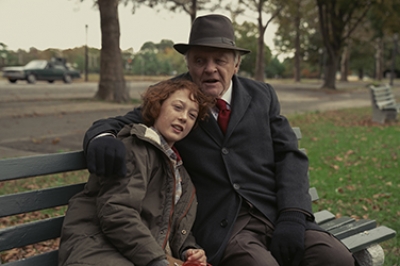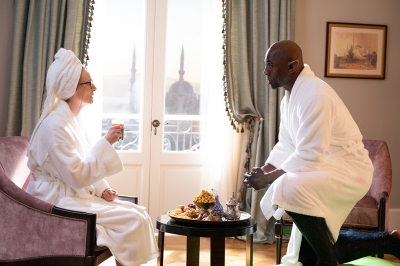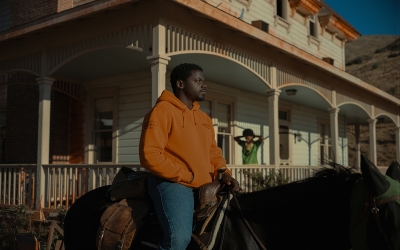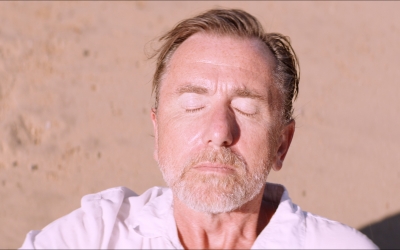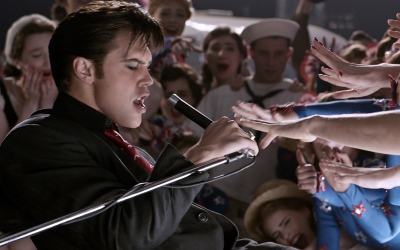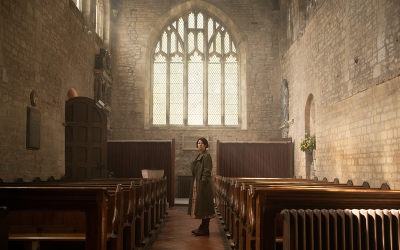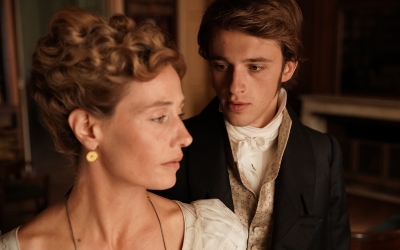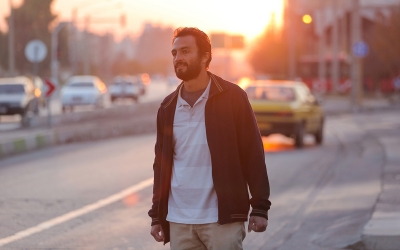Film
After the uneven space operatics of Ad Astra (2019), American writer–director James Gray returns to Earth – specifically to Queens, New York, 1980 – with Armageddon Time, a burnished, contemplative, and astutely observed autobiographical coming-of-age tale. This is a rapidly escalating micro-trend in cinema; it seems that every auteur with enough critical clout will soon be expected to churn out their very own childhood memoir movie, from Alfonso Cuarón’s Roma (2018) and Kenneth Branagh’s Belfast (2021) to the upcoming self-told Steven Spielberg origin story, The Fabelmans.
... (read more)For the casual moviegoer unconcerned by matters of auteurship, it can still come as something of a shock to learn that the person behind the original Mad Max trilogy (1979–85), as well as its decade-defining follow-up, Mad Max: Fury Road (2015), also brought us the madcap animal antics of Babe: Pig in the City (1998) and the all-singing, all-dancing penguin colony of Happy Feet (2006) and Happy Feet 2 (2011). George Miller has one of the most eclectic oeuvres in modern cinema, but all his films are defined by a rich, seemingly limitless vein of imagination, as well as by the technical and aesthetic mastery necessary to mine it. Whether dabbling in live-action or 3D animation – whether wrangling penguins, pigs, or eighteen-wheeler ‘War Rigs’ – Miller is a storyteller first and foremost. It stands to reason that his latest film is a story about stories themselves: where they come from, what they mean to us, and what their place is (if any) in the modern world.
... (read more)In the documentary film Navalny, Christo Grosev, chief investigator with the Bellingcat group of independent journalists, details how he followed the data trail to identify the FSB (Russian secret service) kill team who shadowed Alexei Navalny (leader of the opposition movement) to Siberia in August 2020 and poisoned him with the Soviet-era nerve agent Novichok. The attack left Navalny in a coma, teetering between life and death in a Russian hospital, the doctors apparently complicit in the attempts to cover up the source of his illness.
... (read more)It’s easy to forget that it has only been only six years since Jordan Peele’s directorial début. Get Out (2017) was both a strikingly confident addition to the horror genre and a remarkably influential step-forward for black representation on film, instantly making Peele a household name. Now, his third and latest picture, Nope, is backed by a $60 million budget. This makes it his biggest project yet, costing more than three times as much as his previous film, Us (2019). Unsurprisingly, he delivers a spectacle that would make even Steven Spielberg proud.
... (read more)Michel Franco’s Sundown opens with a close-up of fish slowly suffocating on a boat deck, the first of many enigmatic interjections that punctuate the film. We begin with a family vacation in Acapulco. The Bennetts, an apparently typical nuclear family, swim, sip margaritas, and joke around on the terrace of their luxury resort suite. They attend a cliff-diving contest at the iconic La Quebrada and dine at an exclusive outdoor restaurant. The atmosphere is one of relaxation, with a hint of uneasiness ...
... (read more)Crafting a biopic is a near-impossible act of curation; of the hundreds of thousands of hours that make up a person’s life, which two and a half will accurately sum up their entire existence? Some recent attempts, like the excellent Steve Jobs (2015) or the Judy Garland biopic Judy (2019), limit their slice of life to a handful of defining moments and allow the viewer to extrapolate from there ...
... (read more)The films of Alex Garland (The Beach, 28 Days Later, Sunshine, Ex Machina, Annihilation) all share a distinct feeling of descent – an almost gravitational pull towards madness, towards decay, towards a loss of self. His new film, the ingeniously titled but only half-realised Men, continues this tradition.
It stars Jessie Buckley (devastatingly good in Maggie Gyllenhaal’s The Lost Daughter, and equally committed here) as Harper ...
... (read more)Xavier Giannoli calls Lost Illusions less an adaptation of Honoré de Balzac’s three-volume novel (1837–43) than a transfiguration, comparing it in form to Max Richter’s celebrated reworking of Vivaldi’s Four Seasons. Richter’s ‘Spring’ appears in the film, and a famous quote from Oscar Wilde finds its way into the dialogue, signalling Giannoli’s intention to remake the novel in a way that expresses its ‘spirit and modernity’ without betraying the original.
... (read more)Some directors leave their fingerprints on a finished product through a trademark visual style, a particular musical taste, or a recurring ensemble of actors. Others embody the notion that when something’s truly well made, the handiwork is invisible. Such is the case with Asghar Farhadi, two-time Oscar-winning writer and director of A Separation (2011) and The Salesman (2016), who continues to ride the crest of the Iranian New Wave with A Hero – meticulously studied, profoundly insightful, and expertly executed right through to its impeccable final frame.
... (read more)Will this biopic be the film that reintroduces German author and filmmaker Thomas Brasch to the world? Perhaps. Something is indeed afoot. Brasch and his family – his three siblings are also notable figures in literature and film – have been the subject of three films in the last decade. Besides Dear Thomas (Lieber Thomas, 2021), currently screening the German Film Festival, we have The Brasch Family (Familie Brasch, 2018) and ...
... (read more)
